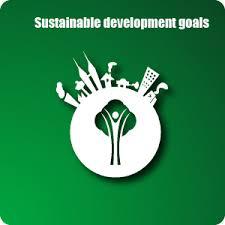
On 4 December, UN Secretary-General Ban Ki-moon presented an advanced, unedited version of his synthesis report on the post-2015 development agenda to UN Member States. "The Road to Dignity by 2030: Ending Poverty, Transforming All Lives and Protecting the Planet" outlines a vision for Member States to consider carrying forward in negotiations leading up to the UN Special Summit on Sustainable Development in September 2015 that will adopt the post-2015 development agenda, the Sustainable Development Goals (SDGs).

The report identifies six essential elements to frame and reinforce sustainable development:
- Dignity - to end poverty and fight inequalities;
- People - to ensure healthy lives, knowledge, andinclusion of women and children;
- Prosperity - to grow a strong, inclusive, and transformative economy;
- Planet - to protect our ecosystems for all societies and our children;
- Justice - to promote safe and peaceful societies, and strong institutions;
- Partnership - to catalyse global solidarity for sustainable development.
The report advocates the necessity of inclusive partnerships and an integrated approach of all actors and acknowledges the important role that local governments play in the realisation of the sustainable development goals, as paragraph 128 states:
“These strategies will also have to be reviewed, and implemented at the local level, with the full engagement of local authorities. In many instances, subnational and local authorities, including mayors, are already leading the charge for sustainable development. Institutional and human capacities will, in many cases, need to be strengthened for effective implementation and monitoring. This includes bolstering capacities to assess needs, collect data and formulate responses across sectors and institutions.”
Moreover, under the fifth essential element of the SDGs – justice – the synthesis report stresses the need for strong institutions. Strong institutions are essential in the fight against state fragility and to ensure the resilience of people and communities to prevent them from fragility. Furthermore it states that effective governance requires public institutions of all levels to be inclusive, participatory and accountable to the people. National accountability must be built on multistakeholder participation, including all levels of government and parliaments, civil society, academia and business. In addition, the report stresses the importance of democratic, participatory governance as both an enabler as well as an outcome of development. The investment in strong institutions, accountability and resilience are essential to ensure the sustainability of the gains made under the auspices of the SDG’s and to avoid reversals in the future.
The CIB Working Group sees these elements as very positive and a recognition for the development cooperation work that members are involved in.
The UN Non-Governmental Liaison Service (UN-NGLS) and UN DESA Division for Sustainable Development (DESA-DSD) invites all stakeholders to submit their – official – responses to the report to a central online repository via this online form. UCLG's Global Task Force is currently working on a formal response on behalf of local governments world wide.
The advanced unedited version of the report is available here.
